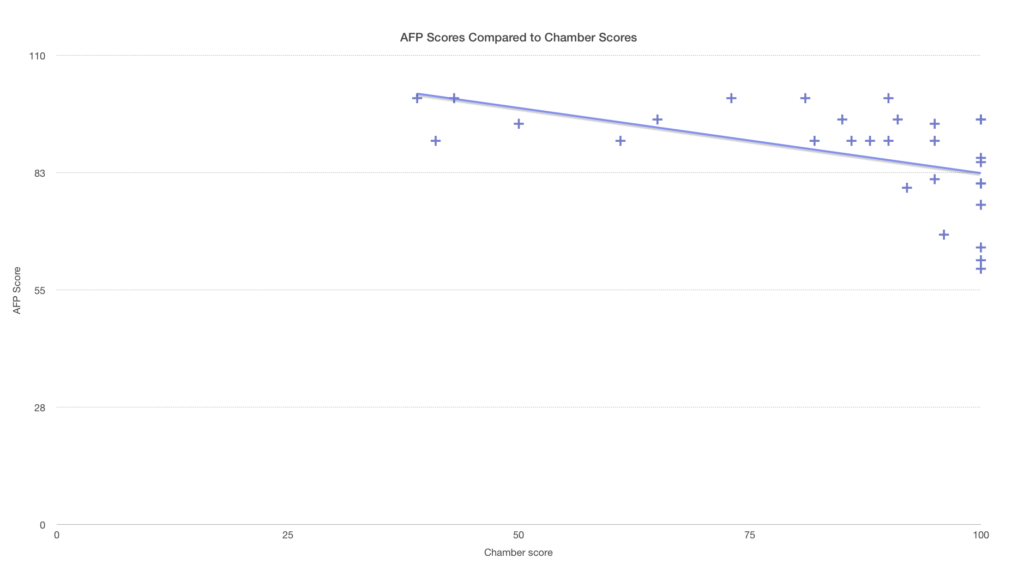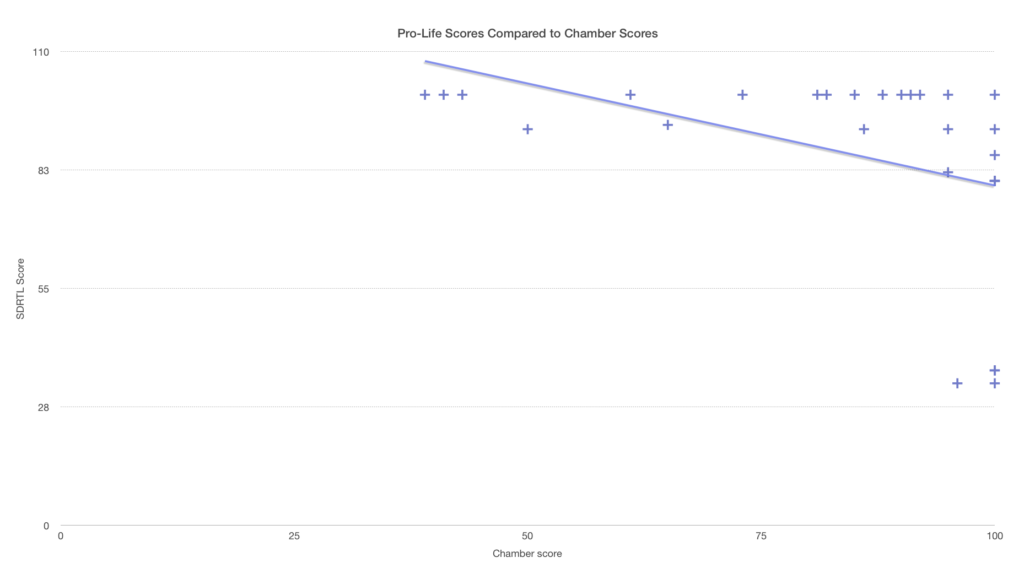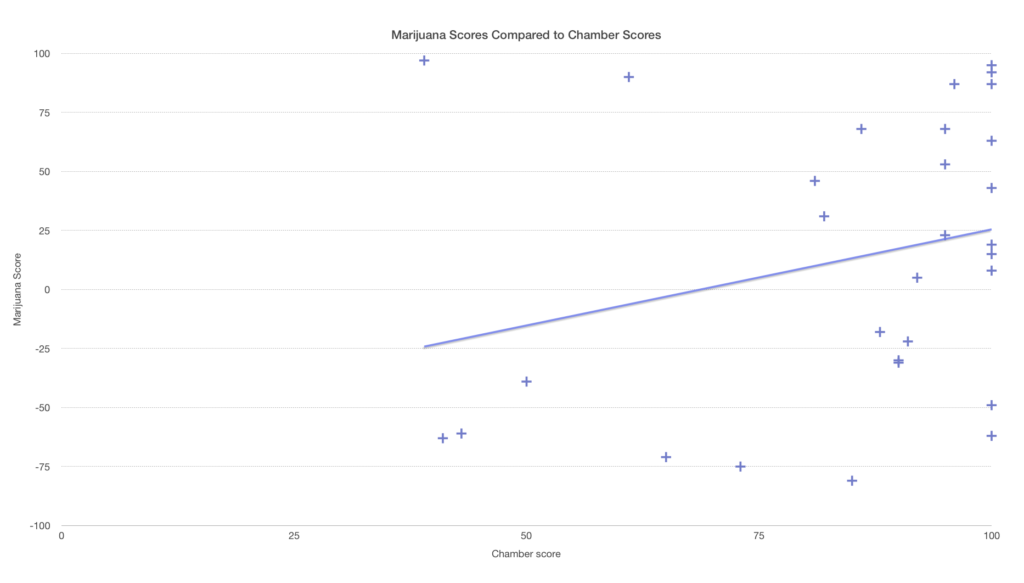
The 2023 legislative session is over (except for veto-day), which means numerous organizations have started making their scorecards to show how legislators voted. Here’s the deal – never trust a scorecard. That’s an odd claim coming from someone who is currently working on a scorecard, but here’s what I mean: never take the information in one specific scorecard and trust it to tell the entire story.
Every year we hear accusations that certain scorecards are “cherry-picked.” The accusation is a claim of bias or a decision to score certain bills based on your opinion. In response to this accusation every honest organization should respond, “Of course it’s cherry-picked!” Each organization chooses bills that matter to them and scores them. That’s the purpose of a scorecard. So whose scorecard should people look at?
Find several of them. Compare multiple perspectives.
Scorecards often conflict and no one group tells the entire story. To illustrate this, we will examine the Chamber of Commerce scorecards and compare them to other groups. In the end, you’ll see why multiple perspectives are necessary. We will compare the “pro-business” score from the Chamber to the “pro-family” score, the “economic-freedom” score, the “pro-life” score, and “pro-marijuana” score.
The scores we will be using are:
The Pro-Business Score from the 2022 Sioux Falls Chamber of Commerce Scorecard
The Pro-Family Score from the 2022 Family Heritage Alliance Action Scorecard
The Pro-Life Score from the 2021/2022 SD Right to Life Scorecard
The Economic-Freedom Score from the 2021 Americans for Prosperity Scorecard
The Pro-Marijuana Score from the 2022 Marijuana Industry Scorecard
Let’s start with the family values scorecard that FHA Action produces (yes, I’m highly biased towards this one). If we compare the 2022 FHA Action scorecard with the 2022 Sioux Falls Chamber of Commerce, we see a clear and surprising correlation: As a legislator’s pro-business score goes up, their pro-family score goes down.
The correlation is nearly identical when comparing the FHA Action scorecard to the Elevate Rapid City scorecard. (Elevate was formerly known as the Rapid City Chamber of Commerce.)
This is due to several factors, one of which is the growing belief that pro-family issues are controversial, and controversy is believed to be bad for business. Another factor is the likelihood that a legislator who will take a tough stand on a controversial social issue may also be against spending state dollars on certain projects (projects that the Chamber would argue are good for business).
Next we compare the pro-business scores with the Americans for Prosperity economic-freedom scores. When we run the numbers, we find a slight correlation: As a legislator’s pro-business score goes up, their economic-freedom score goes slightly down. This is due in part to differing opinions on what is truly best for the economy.

Next we look at the SD Right to Life scorecard. This is the first of the “accidental” correlations we find. As a legislator’s pro-business score goes up, their pro-life score goes down slightly. When looking at this correlation, it’s important to remember that the Sioux Falls Chamber doesn’t engage on abortion issues. In the “business vs. family” comparison and the “business vs. economic freedom” comparison the difference was due to conflicting opinions. This correlation is accidental.

Finally, we move to the comparison of the pro-business scores and the pro-marijuana scores. This comparison was the most striking of all because it’s entirely “accidental” and contrary to what we would expect. When we compare the Sioux Falls Chamber score to the marijuana industry scorecard we find a correlation: as a legislator’s pro-business score goes up, so does their pro-marijuana score.



